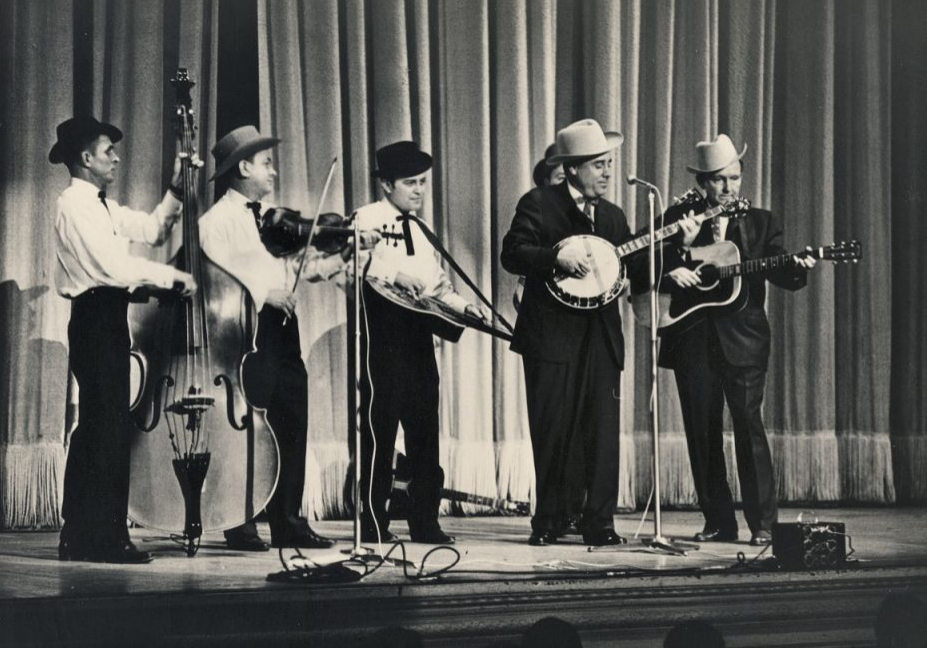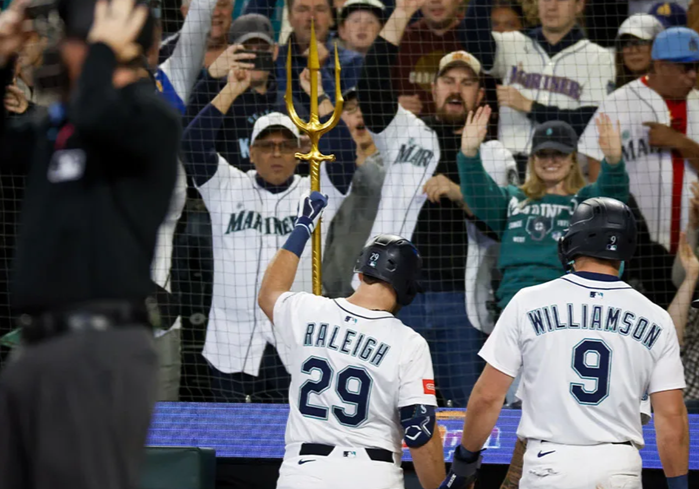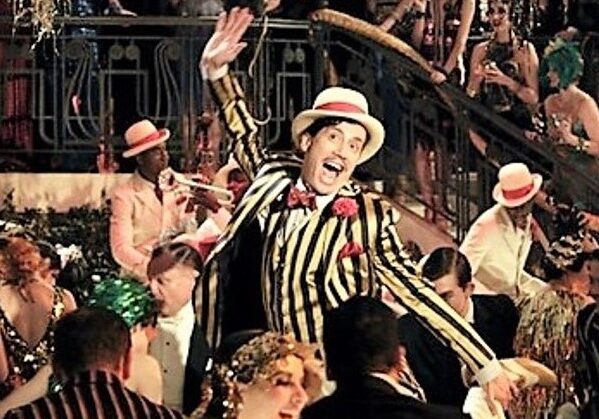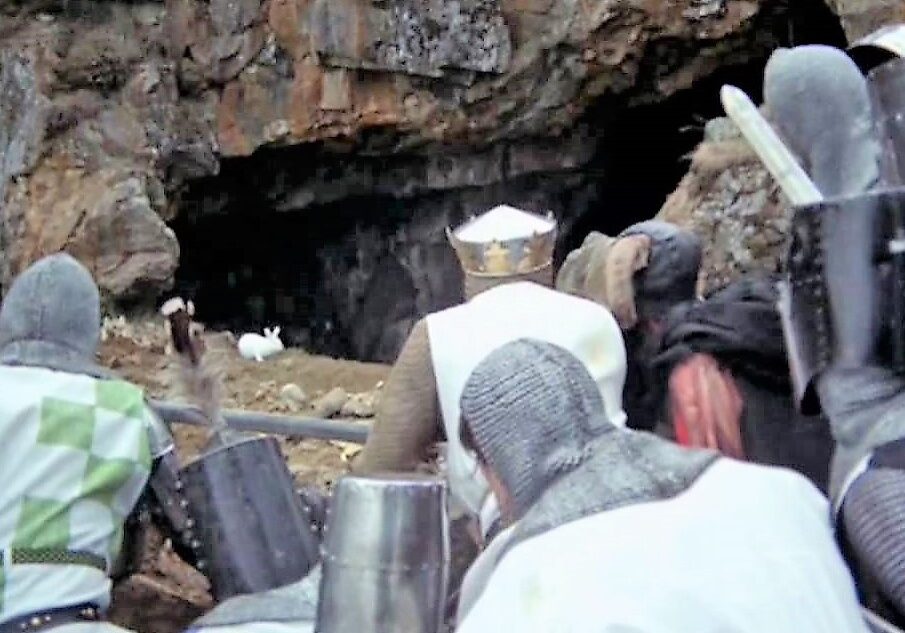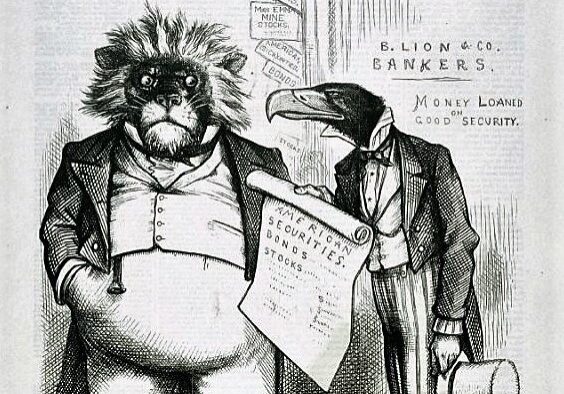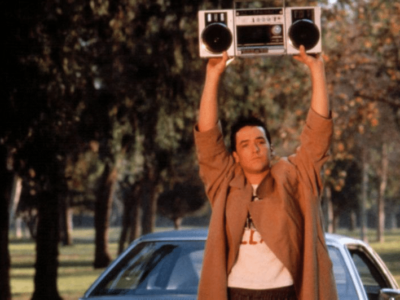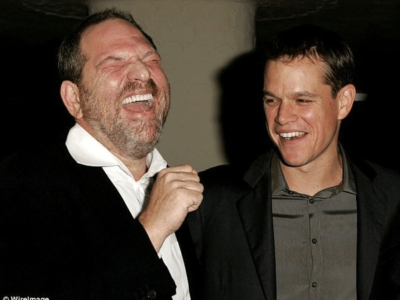Think of Perscient storyboards as a way to track narratives in real-time so you can see reality before the story catches up.
For example, here are five insights on the housing market from Matt Zeigler’s interview with Daryl Fairweather, chief economist at Redfin, that come alive with new meaning through the narrative-tracking power of Perscient storyboards.

After 25 years in the music industry, making beats for some of hip-hop’s biggest names, Alchemist was burning out. Maybe even burned out. But then he discovered a formula from – of all places – Nine Inch Nails’ Trent Reznor that changed everything for him.
After all those years of chasing bigger features, bigger budgets, bigger everythings. After being inspired by Jim Jones verses for “crazy money.” After four different versions of the same song that went four ways to nowhere. Trent Reznor breaks through to him on a video.
The moment came as he watched one $20 payment at a time show up via direct payments in PayPal, for an instrumental album (French Blends) that he otherwise couldn’t put out on a label, but he very much could self release on Bandcamp.
Up that point, he had always been a record industry guy. He had only done distribution the old way, because he was succeeding that way, but at the prompting of some friends he tried something new and – it blew his mind. Instead of writing, recording, sending it off and then waiting forever to maybe get paid, this was immediate. One day you’re finished, the next day it’s in the fans’ hands, and the money is in your bank account.
I want my mind blown too. Don’t you?
Read more at cultishcreative.com
In 1996, Philly scenesters The Roots, put out a video for “What They Do,” to help promote their less live-band feeling third (official) record, Illadelph Halflife. The sheer contradictions in 1996 are hard to remember, let alone explain if you weren’t living it, but the song – it’s like being early on a market-timing call or something.
They wanted to declare, “Hey, we do it differently and that’s cooler than you realize” with a parody type video. Given how different the group was, it wasn’t a punch down in any way, I thought it was a great joke whenever I first saw it too, but – the rest of the world didn’t quite see it that way.
You should probably watch the video before we get too far into this. You have to see it because of the sarcastic subtitles especially, calling out every mid-90s rap video cliché, by putting “Rented for the day” over mansion shots, “It’s really ginger ale” over champagne pours, etc. Like I said before, to suburban punk rock me, this was AWESOME.
However, as The Roots would soon find out, sometimes, when you draw a line in the sand, it can create a situation for something else to blow up in your face.
Read more at cultishcreative.com
You know all those things everybody is doing that you were going to start when nobody was doing them but now, everybody is doing them so you talk yourself out of ever starting?
Maybe you don’t, but I do. I know I’m not alone. Morgan Ranstrom said this to me in the second part of his recent return to Just Press Record.
I still feel late. I don’t think you ever stop feeling late. Unless you were actually early… for the rest of us, I don’t think we get to ever feel like we’re not late. You just go anyways.
Morgan Ranstrom on Just Press Record
The topic came up while discussing a clip from Anne-Laure Le Cunff and Chris Mayer’s Just Press Record appearance. Anne-Laure had shared her Google story on that episode – how she felt like an impostor because “everyone was way smarter than me.” Now she’s brilliant with massive post-Google success, so what even was that feeling?
Here’s the paradox: whatever we focus on feels saturated because we only see the 20% already doing it. We forget about the silent 80% of humanity for whom this isn’t even an option yet. It really does suck to feel late – so how do you cope with it?
Read more at cultishcreative.com
Anderson .Paak is sitting at home, smiling (presumably, because he always is?), when he sees the announcement on social media for Dr. Dre’s Super Bowl halftime show.
It’s a big announcement on a number of levels. Dre helped bring him up, for starters. They’d actually just finished some serious album work together too.
Part of him felt like he’d be included in something like this? That part of him was feeling pretty hurt by not seeing his name on the flyer. Especially since his name would have been next to a nearly endless list of other incredible features.
So, for a moment, he was upset. Then, he did what creatives do. Nothing particular surprising here – he got creative.
He said on Drink Champs, “I hit my people. I’m like, look, you got to figure it out.” They didn’t know what to do, so he made a flyer for the halftime show and put himself on it. “I threw myself on there.” He sent it to Dre and, “I was like, ‘Yo, what’s good?'”
Dre saw it, laughed, and that’s how .Paak ended up on drums for one of the craziest, largest, and most iconic halftime performances in Super Bowl history.
Read more at cultishcreative.com
Scott Bradlee just wrapped up a 12-part lecture series called MusicX. They’re all on his Substack, Musings From The Middle, and if you’re a music dork too, you’ll want to go back and watch them all.
In the last episode, Scott said something I’ve wrestled with a lot in my head over the years:
Art is more of a spiritual pursuit than it is a technical pursuit. There’s nothing mystical about building this toolkit, but there is something mystical about creating art. It’s the pursuit of something transcendent, something that is beyond the material world, and – it’s also something that’s really uniquely human.
Scott Bradlee, MusicX Lecture #12
When I was 5ish, after much begging, I got my first guitar. It came home from the store. If I close my eyes, I can smell the smell of the case opening and me looking at it, thinking “Hey, it’s not an electric guitar, but it’s A GUITAR and it’s my sized and, this is going to be so cool.”
So I pick up the guitar, I hold it the way I hold my toy guitars, and I get ready to play it just like my aunts and uncles in the parties at my grandparents house…
Read more at cultishcreative.com
The cure for the cancer of gun culture and police culture is not to be found in reform laws around guns and police, but in reform ideas around culture, ideas that create a new dimension of American society that rejects LARPing and LARPers alike.
Inflation
What made Bitcoin special is nearly lost, and what remains is a false and constructed narrative that exists in service to Wall Street and Washington rather than in resistance.
The Bitcoin narrative must be renewed. And that will change everything.
Sorry, we couldn't find any posts. Please try a different search.
Crypto
Recent Notes
The Icarus Moment
We live in a Cartoon Age, an era not of alienation per Karl Marx, but of alienation per Groucho Marx. What’s the cause, what’s the future, and what do we do about all this? It’s a TL;DR cri de coeur in Part 12 of Epsilon Theory’s Notes from the Field series.
What is it, really?
The #1 question investors ought to ask of a financial services company trying to sell them something is: “What is it, really?” If you don’t know what you’re investing in, you’re liable to end up eating a lot of crunchy frogs.
Good Job!
This is Part 11 of Ben’s Notes from the Field series. I don’t need to calculate a Sortino ratio to know if my dogs are doing a Good Job. Same with active investment management. Same with active citizenship. It’s all about embracing Convexity, not as a mathematical cartoon, but as a philosophy.
Is Volatility Back?
On this special episode of the Epsilon Theory podcast, we share an excerpt from a conference call we recorded on February 13 discussing our thoughts on the market selloff earlier in the month. You’ll hear from Christopher Guptill, co-CEO and chief investment officer at Broadmark Asset Management and Dr. Ben Hunt, author of Epsilon Theory.
The Fundamentals Are Sound
Most investors think that other investors think that last week’s correction was about vol-selling. The real story? Everybody knows that everybody knows that inflation will change the way portfolios are built and managed.
Too Clever By Half
The inevitable result of financial innovation gone awry, which it ALWAYS does, is that it ALWAYS ends up empowering the State. When too clever by half people misplay the meta-game, that’s all the excuse the State needs to come swooping in and crush them, just as they are with Bitcoin today they did with Bear and Lehman in 2008. Installment #10 from Notes from the Field.
Things That Go Bump In The Night
Everyone reading this note has, at one time or another, gotten scared about markets and decided to hedge their professional portfolio or personal account. The Game of Markets is changing. But should we be scared?
Year In Review
We’ve had a heckuva busy year at Epsilon Theory, so to ring out 2017 I thought it might be helpful to distribute a master list of our publications over the past 12 months. We’re long essay writers trying to make our way in a TLDR world, so even the most avid follower may well need a map!
The Three-Body Portfolio
In a two-body market, the interactions of fundamental data and prices are generally predictable. In a three-body market, the epsilon — investor behaviors in response to narratives — exerts a powerful gravitational force which must be considered when building a portfolio.
The Three-Body Problem
What if I told you that the dominant strategies for human investing are, without exception, algorithms and derivatives? I don’t mean computer-driven investing, I mean good old-fashioned human investing … stock-picking and the like. And what if I told you that these algorithms and derivatives might all be broken today? You might want to sit down for Part 9 of the Notes from the Field series.
Wall Street’s Merry Pranks: Things that Matter #4
The libertarian paternalism of a Nudge culture in finance has created an industry of investors who care about fees but have forgotten about taxes, trading costs, slippage and behavioral costs of actively trading passive instruments.
Pecking Order
The pecking order is a social system designed to preserve economic inequality: inequality of food for chickens, inequality of wealth for humans. We are trained and told by Team Elite that the pecking order is not a real and brutal thing in the human species, but this is a lie. It is an intentional lie, formed by two powerful Narratives: trickle-down monetary policy and massive student debt financing. Part 8 of the Notes from the Field series.
The Two Churchills
If you can manage to find a truly independent voice in your personal, political and financial life, pursue it with reckless abandon. Don’t set it to the side so that you can build a brand or make an impact. Get your ass out of the boat, grab your bow, strap on your broadsword and sound the pipes. All that’s left is to decide what song you’re going to play.
Make America Good Again
On episode 26 of the Epsilon Theory podcast, we welcome back Rusty Guinn, our executive vice president of asset management, to talk about political markets — a topic just as important to Ben as capital markets. Be sure to also check out the companion pieces to this podcast: “Always Go To the Funeral,” “Sheep Logic,” and “Before and After the Storm.”
Harvey Weinstein and the Common Knowledge Game
It was no great secret that Weinstein was and is a serial rapist. Apparently everyone in Hollywood was familiar with the stories. It was ubiquitous private knowledge, and pretty darn ubiquitous public knowledge. I mean, if you’re making jokes about it on 30 Rock, it’s not exactly a state secret.
But there was never a Missionary.
The Myth of Market In-Itself: Things That Matter #3, Pt. 2
The behaviors that influence markets must be considered in context of archetypes, the languages and identities which group investors every bit as much as identity politics groups voters.
Clever Hans
Part 7 of Ben’s Notes from the Field series reminds us that you don’t break a wild horse by crushing its spirit. You nudge it into willingly surrendering its autonomy. Because once you’re trained to welcome the saddle, you’re going to take the bit. We are Clever Hans, dutifully hanging on every word or signal from the Nudging Fed and the Nudging Street as we stomp out our investment behavior.
Gandalf, GZA and Granovetter
When we try to define others’ cartoon, we take away their agency, and strip away their humanity. And we do it with our clients, every time we guess what behavioral box they fit it.
Failure to Inflate
On episode 25 of the Epsilon Theory podcast, we’re joined by Peter Cecchini, Chief Market Strategist, Head of Equity Derivatives and Cross-Asset Strategy at Cantor Fitzgerald, to discuss one of his recent notes, “Failure to Inflate.” As Peter writes, “The theories that guide monetary policy fail to explain why growth and inflation remain so low in developed economies.” Tune in to hear why this is and what might bring about higher inflation.
Massively Fast Compute, AI Algorithms and Blockchain Development (by Silly Rabbit)
I’m limiting this week’s Rabbit Hole to three links which represent the rapid tick-tock of the trifecta of massively fast compute, AI algorithms and blockchain development as I believe that these are the top three technology mega-trends of the 2015 – 2025 period (ex-Life Sciences innovation).

After 25 years in the music industry, making beats for some of hip-hop’s biggest names, Alchemist was burning out. Maybe even burned out. But then he discovered a formula from – of all places – Nine Inch Nails’ Trent Reznor that changed everything for him.
After all those years of chasing bigger features, bigger budgets, bigger everythings. After being inspired by Jim Jones verses for “crazy money.” After four different versions of the same song that went four ways to nowhere. Trent Reznor breaks through to him on a video.
The moment came as he watched one $20 payment at a time show up via direct payments in PayPal, for an instrumental album (French Blends) that he otherwise couldn’t put out on a label, but he very much could self release on Bandcamp.
Up that point, he had always been a record industry guy. He had only done distribution the old way, because he was succeeding that way, but at the prompting of some friends he tried something new and – it blew his mind. Instead of writing, recording, sending it off and then waiting forever to maybe get paid, this was immediate. One day you’re finished, the next day it’s in the fans’ hands, and the money is in your bank account.
I want my mind blown too. Don’t you?
Read more at cultishcreative.com
In 1996, Philly scenesters The Roots, put out a video for “What They Do,” to help promote their less live-band feeling third (official) record, Illadelph Halflife. The sheer contradictions in 1996 are hard to remember, let alone explain if you weren’t living it, but the song – it’s like being early on a market-timing call or something.
They wanted to declare, “Hey, we do it differently and that’s cooler than you realize” with a parody type video. Given how different the group was, it wasn’t a punch down in any way, I thought it was a great joke whenever I first saw it too, but – the rest of the world didn’t quite see it that way.
You should probably watch the video before we get too far into this. You have to see it because of the sarcastic subtitles especially, calling out every mid-90s rap video cliché, by putting “Rented for the day” over mansion shots, “It’s really ginger ale” over champagne pours, etc. Like I said before, to suburban punk rock me, this was AWESOME.
However, as The Roots would soon find out, sometimes, when you draw a line in the sand, it can create a situation for something else to blow up in your face.




